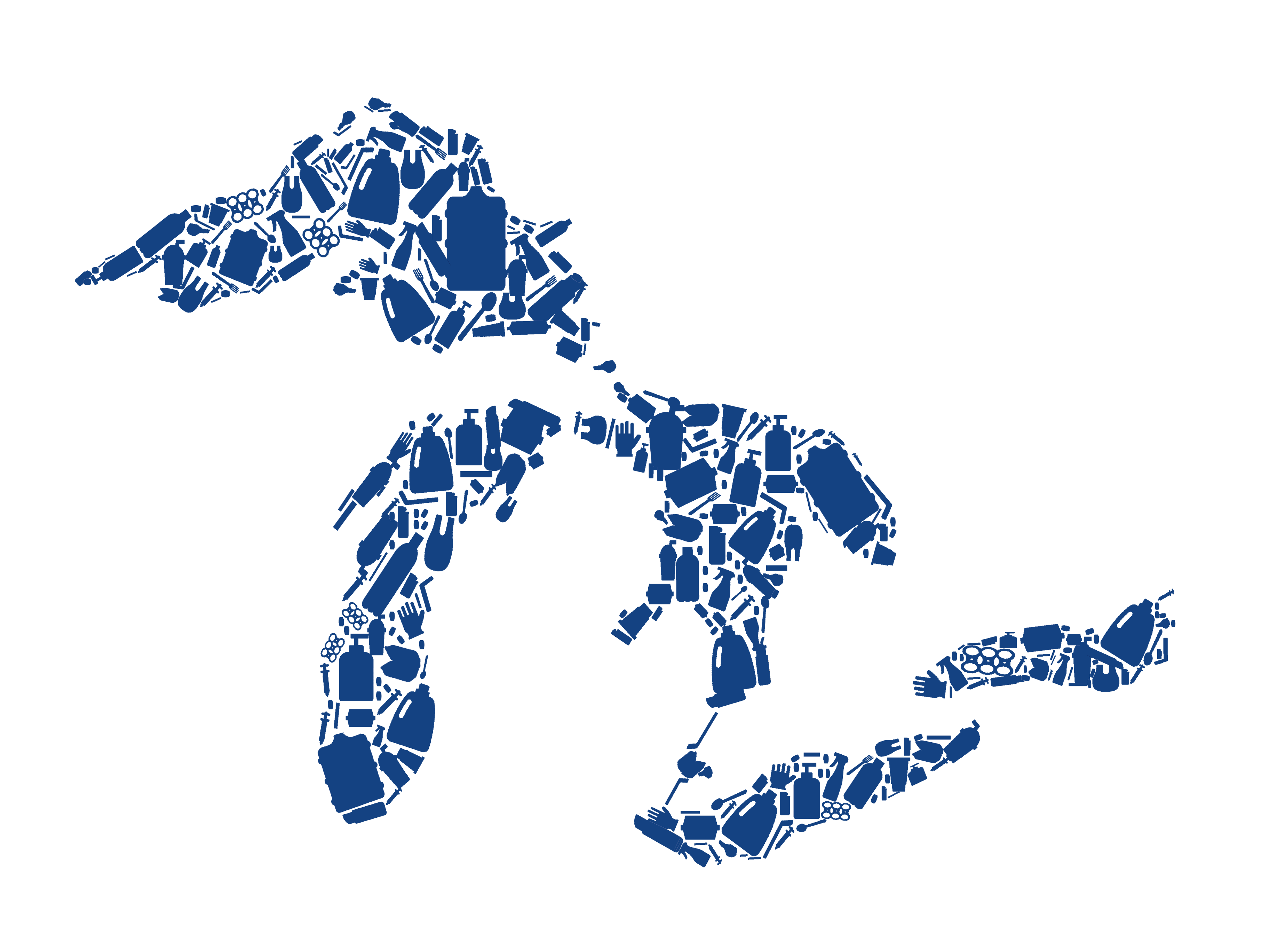Western University and Lambton College join the initiative
TORONTO, Ontario – November 12, 2020 Today, the Great Lakes Plastic Cleanup is pleased to announce that Western University and Lambton College are joining the initiative as research partners, taking the lead on characterizing the debris collected by capture and cleanup devices at several participating marinas. Both academic institutions are recognized leaders in environmental research and innovation, particularly on plastics and issues affecting Canada’s freshwater ecosystems.
“Over the last few years, Great Lakes researchers have opened everyone’s eyes about the scale of the plastic pollution problem in the largest freshwater system in the world, but there is so much more that we need to learn in order to stop the cycle of plastic waste and sources of litter,” said Mark Fisher, President and CEO, Council of the Great Lakes Region. By adding Western University and Lambton College to the GLPC initiative, two exceptional higher education institutions in Ontario, we’ll be able to do just that.”
The Great Lakes Plastic Cleanup focuses on the removal of plastic waste from waterways and the analysis of the debris collected to build research on the types and pathways of plastic pollution in the Great Lakes Basin. The initiative launched on August 27, 2020, installing Seabin and LittaTrap™ capture and cleanup devices in an initial cohort of 11 marinas. The number of marinas within the network has grown significantly since the launch, and now has almost 30 participating sites.
Waste characterization, or the sorting and analysis of the debris found at participating sites throughout the Great Lakes, is a critical component of the initiative. Partnership with Western University and Lambton College allows the Great Lakes Plastic Cleanup to further expand its research network to keep pace with the rapidly growing number of participating marinas and municipalities. The initiative’s waste characterization network is comprised of some of Canada’s leading plastics experts, including those from the U of T Trash Team, a founding partner. Dr. Patricia Corcoran and her team at Western’s Faculty of Science are conducting vital research into the pathways of plastic pollution into the Great Lakes. The Research & Innovation department of Lambton College works with a range of organizations, focusing on the innovative use of technology to bring about meaningful economic, social and environmental impacts.
“Combined, the data we collect will measure the magnitude of our positive impact and inform policies relevant to source-reduction,” says Dr. Chelsea Rochman, Assistant Professor, Department of Ecology and Evolutionary Biology at the University of Toronto. “What we collect in the bins informs the types of plastics that are leaking into our aquatic ecosystems.”
Plastic pollution is a major concern in the Great Lakes Basin, the largest freshwater system in the world. Beyond visible plastic, microplastics, microscopically small particulates that are often difficult to see with the naked eye, are present throughout the lakes. Ocean plastics have been the focus of extensive study and public awareness campaigns, but the impact of plastic in freshwater systems like the Great Lakes and their surrounding waterways is an equally pressing environmental concern. More research is needed to broaden our understanding of how plastic pollution affects these freshwater systems, as well as the sources and pathways through which plastic reaches the water.
“Over the past 10 years, we’ve studied plastic debris types littering the shorelines and lake bottom sediment of the Great Lakes, but the current pandemic has resulted in increased use and discard of single use plastic items,” says Dr. Patricia Corcoran, Associate Professor and Chair, Department of Earth Sciences at Western University. “The Western plastics pollution research group thus appreciates the opportunity to join the Great Lakes Plastic Cleanup Initiative in trapping and characterizing the plastic waste polluting our environment.”
“Lambton College is excited to support this collaborative project utilizing our expertise and infrastructure in material research,” says Stephen Reume, Manager, Research Operations at Lambton College. “The project goals align well with the College’s strategic focus to support the development of clean technologies and to address environmental challenges.”
About the Great Lakes Plastic Cleanup
The Great Lakes Plastic Cleanup, founded by Boating Ontario, the Council of the Great Lakes Region, Pollution Probe, PortsToronto and the U of T Trash Team, is the largest initiative of its kind in the world using innovative Seabin and LittaTrap technology to quickly capture and remove plastics and other litter at marinas from Lake Ontario to Lake Superior and everywhere in between. Through research, outreach and education, the Great Lakes Plastic Cleanup will work to identify sources of litter entering our waterways and how government, industry, and consumers can work together to reduce, reuse and recycle material waste. The initiative is made possible thanks to funding from Environment and Climate Change Canada and the Government of Ontario, with sustaining funding from lead corporate sponsor, NOVA Chemicals.
Media Contacts:
Melissa De Young
Director, Policy & Programs
Pollution Probe
mdeyoung@pollutionprobe.org
Mark Fisher
President and CEO
Council of the Great Lakes Region
613-668-2044 / mark@councilgreatlakesregion.org
Chelsea Rochman
Assistant Professor, Department of Ecology and Evolutionary Biology
University of Toronto
(416) 978 – 6952 / chelsea.rochman@utoronto.ca
More Information:
www.greatlakesplasticcleanup.org
Twitter: @GLPCleanup – https://twitter.com/GLPCleanup
Facebook: @GLPCleanup – https://www.facebook.com/GLPCleanup/
Instagram: @glpcleanup – https://www.instagram.com/GLPCleanup/

